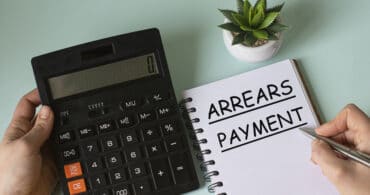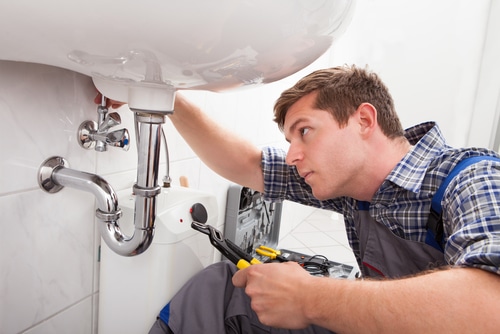How Property Managers Can Tackle Repairs and Maintenance During COVID-19
In this latest instalment of our coronavirus series for landlords, we’re studying the official rules surrounding the various aspects of property management, and sharing tips from our property services experts on how best to approach your COVID-19 obligations as a landlord.
Whilst the COVID-19 pandemic may have had quite an impact on various elements of property services and the private rented sector in general, there are certain aspects that property management companies have been able to continue with. This includes essential property maintenance and repairs, check-in and check-out inspections, end of tenancy cleaning and, more recently, property viewings.
In this latest instalment of our coronavirus series, we’re looking specifically at the official line on the rules surrounding the various aspects of property management, and sharing tips from our experienced property services experts on how best to approach your duties and obligations as a landlord.
Property maintenance and repairs during COVID-19
Landlords are entitled to visit their properties in response to any health and safety concerns. Tradespeople are also permitted to attend a property in order to complete essential repairs, on the basis that both parties are not experiencing coronavirus symptoms.
It is important to be aware that local authority staff who are responsible for the enforcement of standards within the private rented sector will continue to respond to any complaints regarding health and safety risks within rented properties. What’s more, there are no measures in place to prevent them from taking enforcement action where they identify a serious risk to health and safety. In other words, and property management companies will emphasise this: the pandemic is no excuse to overlook or postpone vital maintenance and repairs in your rental properties, but you will have to follow the stipulated government guidelines when doing so.
What are ‘essential repairs’?
Putting right anything that could potentially place a tenant or the property at risk is classed as essential work. Examples would be a leak, a blockage or a burst pipe; a broken or missing roof tile and non-functioning heating and hot water. Also included under the bracket of essential repairs are broken white goods such as fridge freezers and washing machines; security-critical issues such as broken windows or non-functioning door locks, and repairs of any equipment relied upon by a disabled tenant.
External repairs and planned maintenance works can proceed for tenanted properties. Works within void properties, including refurbishments where required, can also go ahead so that the properties can be re-let.
Where you are responsible for cleaning shared areas of a house in multiple occupation, the cleaning should continue but must be in line with government guidance. Cleaners must wear appropriate protective clothing, such as disposable gloves and aprons,
What guidelines do tradespeople need to follow?
The government has stressed to landlords and property management companies that tenant safety must always come first.
Tradespeople attending a tenant’s home to undertake essential maintenance and repairs must follow government advice on social distancing and hygiene for work carried out in other people’s homes.
Checking with tenants to discover whether they are self-isolating is essential before any visits are made to the property either by you as the landlord, or by any tradesperson. No work can be undertaken in any household which is isolating or where a tenant is shielding, unless it is to remedy a direct risk, in which case prior arrangements must be made to avoid any face to face contact.
See Working Safely During Coronavirus – Other People’s Homes for the full official guidance, which covers:
- Conducting and sharing a risk assessment
- Protecting those at higher risk
- Dealing with people who need to self-isolate
- Travelling to the property
- Moving around inside the property
- Interacting with householders
- Cleaning and hygiene
- PPE and face coverings
Preparing for new tenancies
Landlords are permitted to prepare and market their properties for letting. This can include physical viewings, end of tenancy cleaning and check-in and check-out procedures.
Property viewings
Landlords or property services agents must not conduct physical viewings in properties where tenants are symptomatic or self-isolating, or where they are shielding. Instead, virtual viewings should be used.
For all other cases, viewings should be conducted in line with the guidance on viewings included in the guidance on moving home during the coronavirus (COVID-19) period in England. In summary:
- Try to conduct initial viewings virtually wherever possible (property management companies can assist with this).
- Physical viewings should be by appointment only.
- Limit physical viewings to members of the same household. Consider appointing a lead tenant to do the viewing with, and do not arrange any open house viewings.
- Always follow current social distancing guidelines.
- Open all internal doors and wipe down surfaces.
- Advise viewers not to touch surfaces.
- Viewers must wash their hands with soap and water or use sanitiser immediately after entering the property.
- If your property is tenanted, try to arrange where possible for the tenants to vacate the property during the viewings. After the viewing, be sure to clean common touch points such as door handles before you leave.
Check-ins and check-outs
Landlords and property managers are advised by the government to consider the best way to conduct check-ins for new tenancies and check-outs at the end of a tenancy, always taking care to follow social distancing guidelines.
If you are using a third party inventory clerk to conduct your check-in or check-out inspections then be sure to do your due diligence regarding their processes, and ask for a copy of their own COVID-19 policy and risk assessment so you can be certain they are following the necessary guidelines.
To help with the tenanting process, there are temporary COVID-19 measures in place that adjust right to rent checks. The checks are temporarily allowed to be conducted remotely with documents submitted electronically.
Need help with property management during COVID-19?
There are many guidelines to follow and protocols with which to comply when navigating your way through property repairs and maintenance during COVID-19. If you could use some expert guidance, or would simply like to hand over the entire responsibility to a property services specialist you can trust, talk to homes2let.
When it comes to property management, Croydon based homes2let offers the full package. What’s more, the homes2let rent guarantee scheme secures your rental payments too, even during void periods. Why not get in touch to discover how we can make your life as a landlord that bit easier?
Related Insights

Surge in Rent Arrears Sparks Call for Landlords to Protect Their Investments
UK landlords are being prompted to make sure they have appropriate strategies in place to protect their property investments following a recent surge in rent arrear cases. With government data revealing that rent arrears amongst private tenants have increased, and almost two thirds of landlords reporting that they’ve had to absorb arrears-related losses from their savings, it is vital that some form of landlord rent arrears insurance is in place to mitigate future financial issues.

A Guide to Valuing Your Buy-to-Let Property for Rent
Location, property size and condition and the features of the home are all factors involved in calculating how much rent to charge. Your online calculation really is only an indication and shouldn’t be considered as a be all and end all rate. Let’s take a look at the key points to consider when setting your rental rate.

The Importance of Regular Mid-term Inspections
Ensuring minor issues don’t escalate into major problems is an exercise that never fails to save landlords time and money. It’s precisely why the mid-term inspection is such a vital tool. Here’s the lowdown on mid-term inspections, why as a landlord you should be investing in them, how often you should be doing them, and what’s involved.







